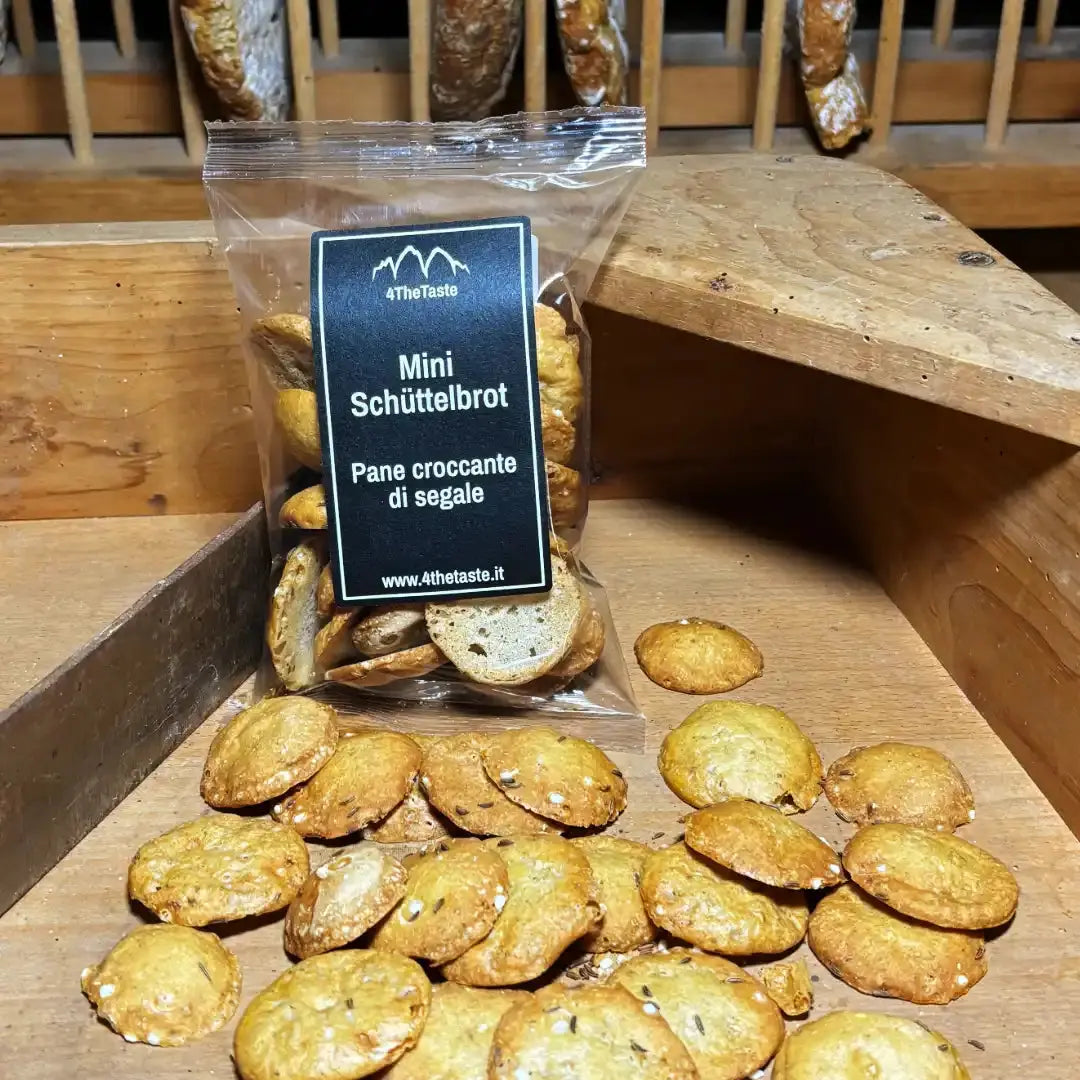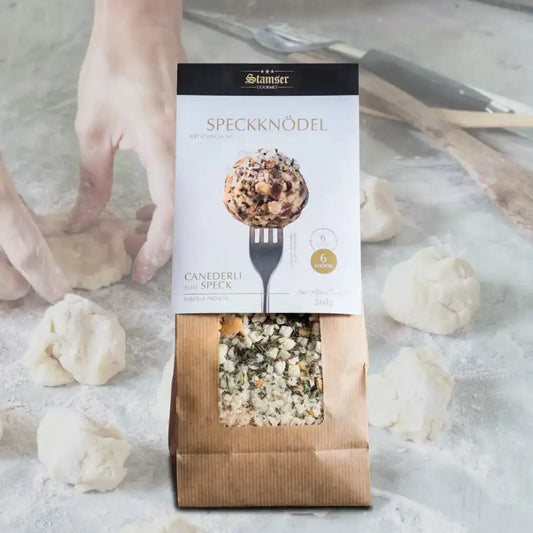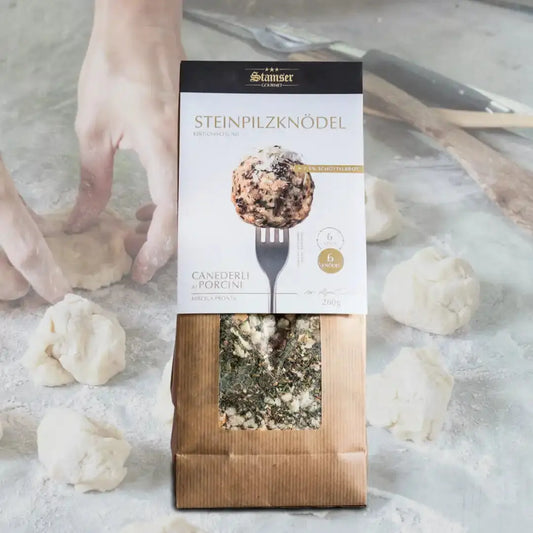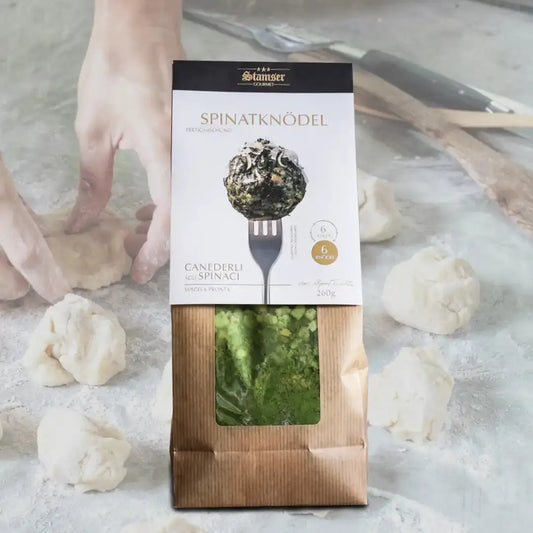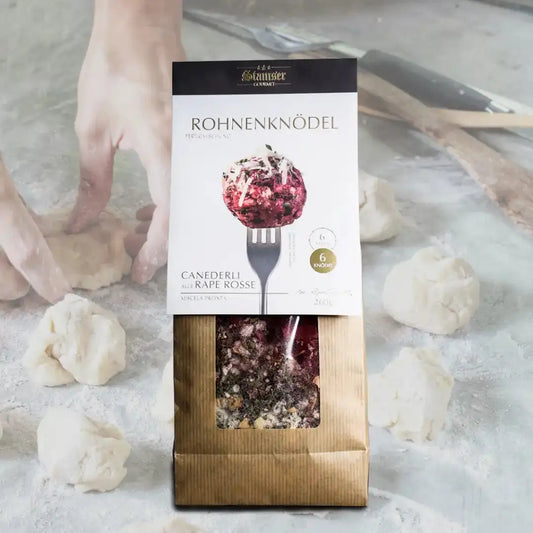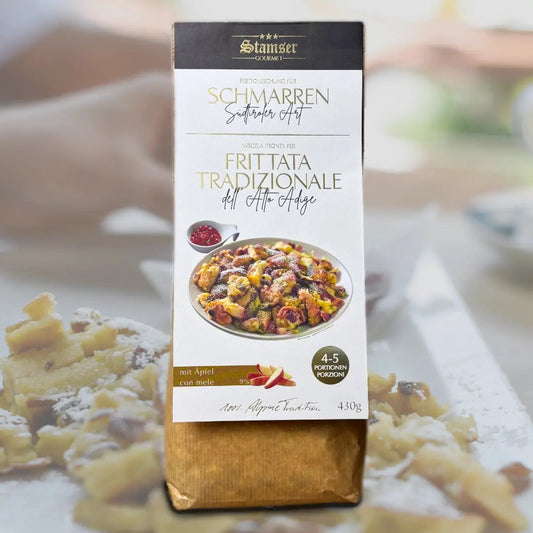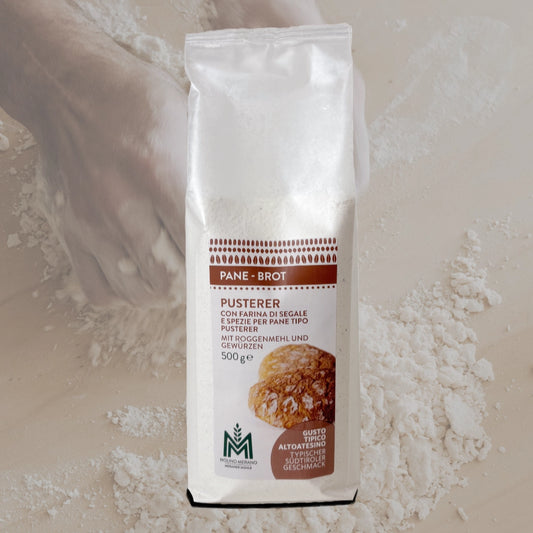Starting from 99€ order value
Südtiroler Knödel: Eine kulinarische Reise durch Tradition und Vielfalt
Dumplings are more than just a dish - they are a piece of South Tyrolean cultural history on the plate. In this article we delve into the world of this popular specialty , from its historical roots to modern variations.
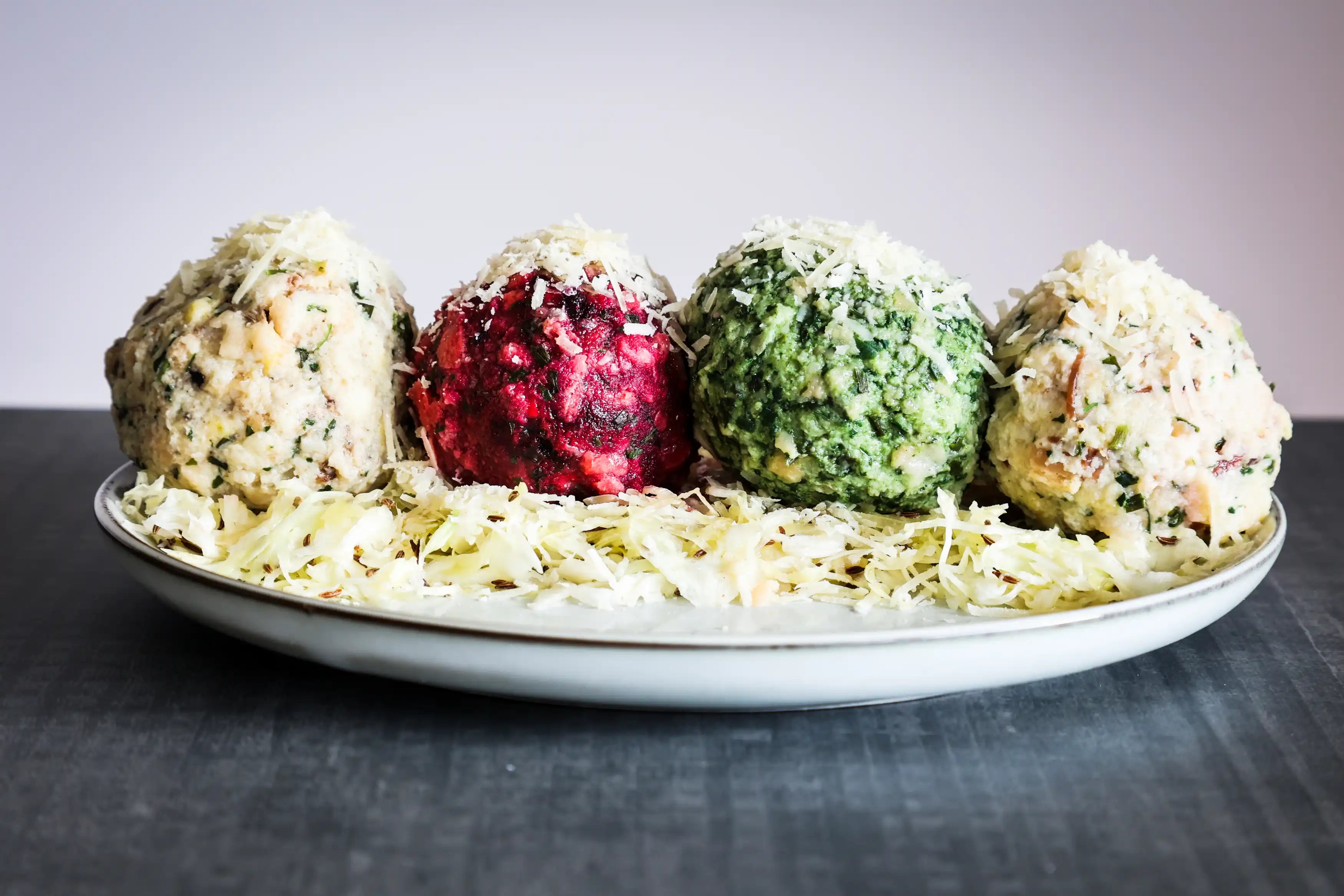
What are South Tyrolean dumplings?
South Tyrolean dumplings are round, boiled dough balls traditionally made from stale bread, milk, eggs and various ingredients such as bacon , cheese or spinach . They are a prime example of the region's sustainable cuisine as they offer a creative way to use up leftovers .
What are dumplings called in South Tyrol?
In South Tyrol, dumplings are usually simply called "Knödel". However, there are specific names depending on the variant:
- Speck dumplings : The classic version with South Tyrolean bacon
- Spinach dumplings : prepared with spinach
- Cheese dumplings : filled with different types of cheese
- Liver dumplings : With liver as the main ingredient
Are dumplings the same as dumplings?
Although dumplings and dumplings are often used synonymously, there are regional differences:
- Dumplings : Typical for southern Germany, Austria and South Tyrol
- Dumplings : More common in central and northern Germany
- Main difference : dumplings are usually made from bread, Klöndel often from potatoes
Where was the dumpling invented?
The exact origin of the dumpling is controversial:
- Alpine region: Archaeological finds indicate a long tradition in this region
- Earliest depiction: The fresco of the "Dumpling Eater" from the 12th century in the castle chapel of Hocheppan in South Tyrol
- First written mention: The word "Knödel" or "Knötlein" appears in the 15th century
Is Knödel German?
Dumplings have a broad cultural roots:
- Alpine origin: They are widespread in Germany, Austria, South Tyrol and the Czech Republic
- Regional variations: Each region has developed its own recipes and traditions
- Cultural heritage: Dumplings are an important part of Alpine cuisine and identity
What is Tyrolean Tris?
Tiroler Tris is a traditional dish that represents the diversity of Tyrolean dumpling culture:
- Three types of dumplings: mostly bacon dumplings, spinach dumplings and cheese dumplings
- Serving method: Often in broth or with brown butter and parmesan
- Cultural significance: Shows the versatility of dumpling cuisine in one dish
What does it mean to let dumplings simmer?
"Letting the dumplings simmer" refers to an important step in the preparation:
- After cooking: The dumplings are taken out of the water
- Rest time: You are left to rest for a few minutes
- Purpose: This helps to improve the texture and prevents them from falling apart when cut
How do you eat a dumpling properly?
The "right" way to eat a dumpling can vary, but here are some tips:
- With fork and knife: Cut the dumpling into bite-sized pieces
- In soup: Spoon the soup together with pieces of dumpling
- With side dishes: Combine bites of the dumpling with side dishes such as sauerkraut or salad
- Enjoy: Take your time to discover the different textures and flavors of South Tyrolean dumplings
Why do you put bread in dumplings?
There are several reasons for using bread in dumplings:
- Leftovers: A way to use stale bread
- Texture: Bread gives the dumplings an airy but firm consistency
- Taste: It gives the dumplings a characteristic taste
- Tradition: Part of the sustainable cooking culture in the Alpine regions
Why do you cook dumplings without a lid?
Cooking dumplings without a lid has practical reasons:
- Observation: You can monitor the cooking process better
- Even cooking: Prevents the dumplings from becoming too soft on top
- Tradition: Part of the traditional preparation method
How long do you cook South Tyrolean dumplings?
The cooking time for South Tyrolean dumplings varies depending on the size and recipe:
- Average cooking time: 10-15 minutes
- Cooking test: The dumplings are ready when they float on the surface
- Tip: Allow to stand briefly after cooking to improve the consistency
Conclusion
South Tyrolean dumplings are much more than just a side dish - they are a piece of living cultural history. From their rich tradition to modern interpretations, they offer a fascinating culinary journey through the Alpine region. Whether classic with bacon, innovative with seasonal ingredients or as part of the popular Tyrolean Tris - dumplings remain an indispensable part of South Tyrolean cuisine. They invite you to experiment, enjoy and immerse yourself in the rich world of flavors of this unique region. Whether in cozy mountain huts, at traditional festivals such as the Sterzing dumpling festival or in modern gourmet restaurants - South Tyrolean dumplings delight locals and visitors alike and carry the culinary heritage of South Tyrol into the future.
Discover dumplings & more from South Tyrol
-
Bacon dumplings - 260g
Regular price 9,99€Regular priceUnit price 38,42€ / per kg -
Porcini dumplings - 260g
Regular price 9,99€Regular priceUnit price 38,42€ / per kg -
Spinach dumplings - 260g
Regular price 9,99€Regular priceUnit price 38,42€ / per kg -
Beetroot dumplings - 260g
Regular price 9,99€Regular priceUnit price 38,42€ / per kg -
Apple Pancake - 430g
Regular price 9,99€Regular priceUnit price 23,23€ / per kg -
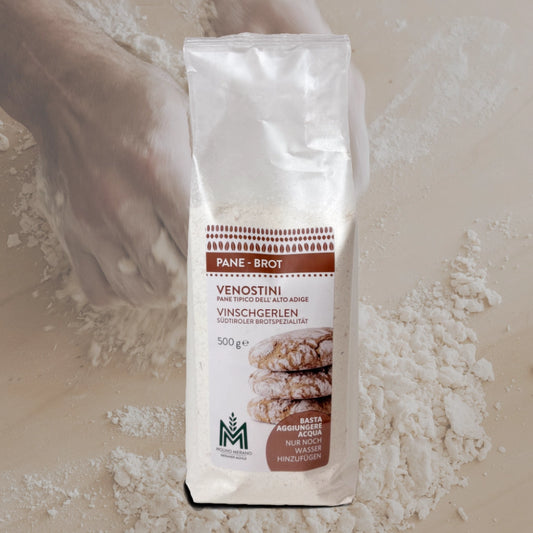 Sold out
Sold outVinschgerle - 500g
Regular price 4,49€Regular priceUnit price 8,98€ / per kg -
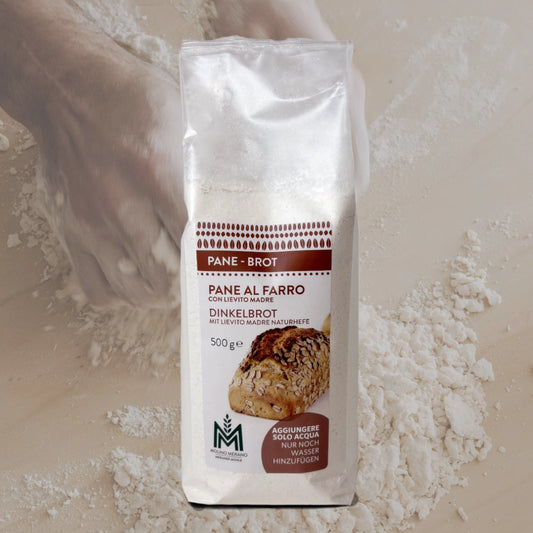 Sold out
Sold outVinschgerle - 500g
Regular price 4,99€Regular priceUnit price 9,98€ / per kg -
Vinschgerle - 500g
Regular price 3,99€Regular priceUnit price 7,98€ / per kg -
 Sold out
Sold outVinschgerle - 500g
Regular price 4,99€Regular priceUnit price 9,98€ / per kg -
Spinach pasta dough - 515g
Regular price 4,87€Regular priceUnit price 9,46€ / per kg6,49€Sale price 4,87€-24% -
Vinschgerle - 500g
Regular price 4,99€Regular priceUnit price 9,98€ / per kg -
Vinschgerle - 500g
Regular price 4,99€Regular priceUnit price 9,98€ / per kg
Sustainable packaging
No unnecessary plastic
South Tyrolean tradition
Handicrafts from South Tyrol
our mission
Bringing South Tyrolean tradition closer
Free Shipping
Starting from 99€ order value
Sustainable packaging
No unnecessary plastic
South Tyrolean tradition
Handicrafts from South Tyrol
our mission
Bringing South Tyrolean tradition closer
